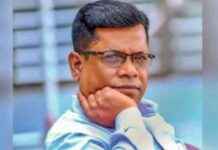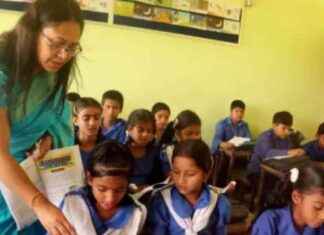Tareq Rahman’s Creation of July-August Political Turmoil: Review
In the midst of the political upheaval that has gripped Bangladesh in July and August, Tareq Rahman’s influence has been a significant factor. As senior correspondent, I had the privilege of delving into the heart of the matter, uncovering the intricate web of events that unfolded during this tumultuous period.
The Roots of Unrest: A Political Landscape Transformed
It was Mangalbar, the 28th of January, when the National Press Club’s auditorium played host to a gathering in honor of the 89th birth anniversary of Shaheed President Ziaur Rahman. During this event, former Prime Minister Begum Khaleda Zia extended her wishes for his physical well-being, which was followed by an insightful discussion organized by the Diplom Engineers Association of Bangladesh (DEAB).
Senior BNP leader Ruhul Kabir Rizvi expressed grave concern over the infiltration of all major educational institutions by radical elements. This infiltration, he claimed, had led to a worrisome scenario where dissent against the government was being stifled. Rizvi emphasized the critical role of constructive criticism in a democratic society, highlighting the need for the government to listen to public grievances.
The Winds of Change: A Government in Transition
Rizvi further elaborated on the internal strife within the government, labeling the current administration as a puppet regime controlled by a specific political faction. His insights shed light on the intricate power dynamics at play, with various incidents serving as a testament to the underlying tensions within the government.
Furthermore, Rizvi alluded to the government’s aspiration to transition from a revolutionary regime to one that was more inclusive and responsive to public demands. This shift, he argued, had led to a restructuring of administrative frameworks across the globe, heralding a new era of governance.
Tareq Rahman: A Catalyst for Political Disarray
Rizvi attributed the political turmoil witnessed in July and August to the machinations of Khaleda Zia and Tareq Rahman. Despite their differences, he noted, Khaleda Zia had never distanced herself from Tareq Rahman, showcasing a united front in the face of adversity.
The DEAB event also saw the presence of key figures such as BNP Chairman’s Advisor Habibur Rahman Habib, BNP’s Co-Health Editor Dr. Parvez Reza Kakon, and Dhaka Journalists Union’s Vice-Chairman Rashidul Islam Pramukh. Their collective insights further enriched the discourse, providing a multifaceted view of the prevailing political landscape.
As the clock struck 19:34 on January 28, 2025, the echoes of political discontent reverberated across Bangladesh. The events that transpired during this period underscored the fragility of the country’s political fabric, calling into question the future trajectory of the nation. The path ahead remains uncertain, with the shadows of change looming large over the horizon.



























